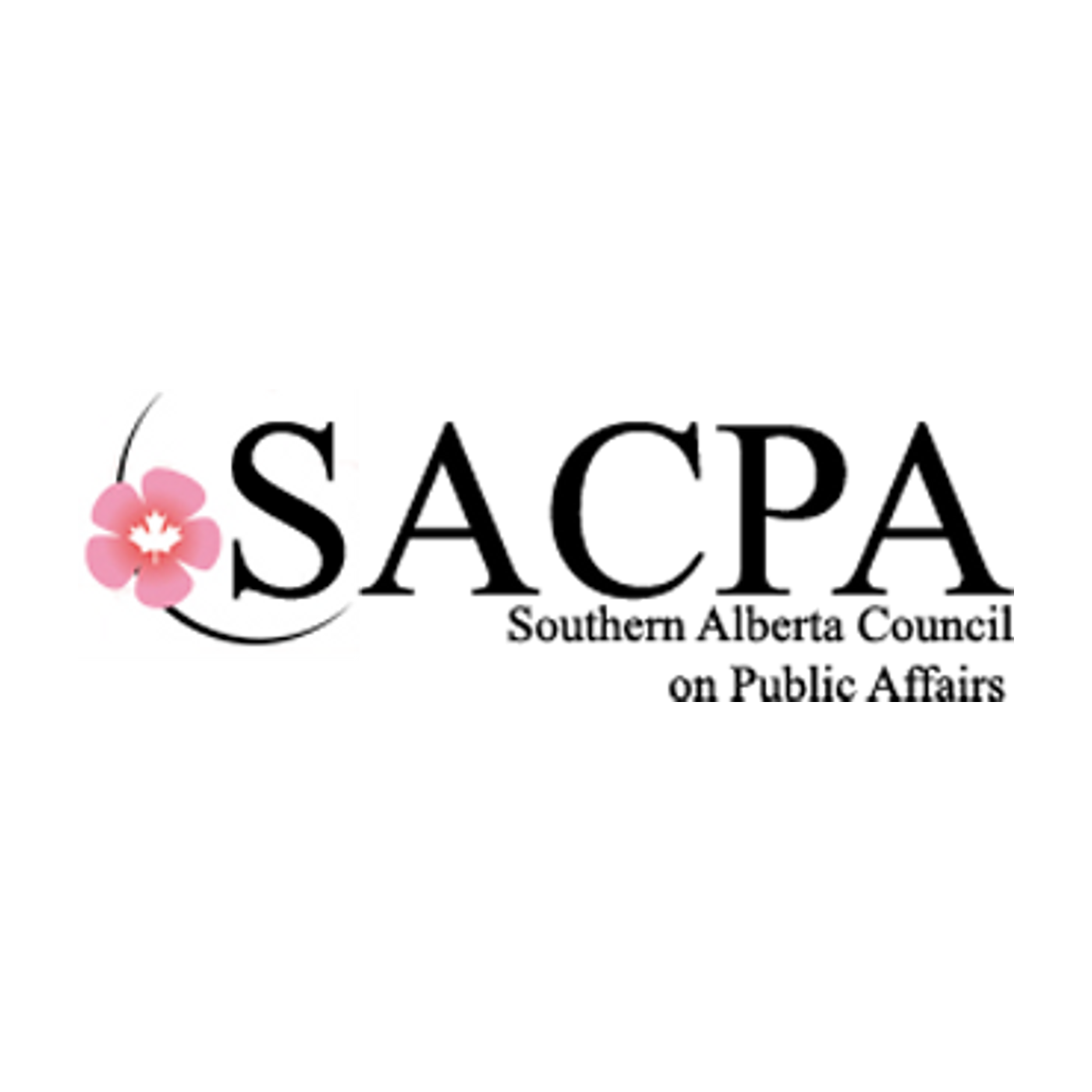
25.8K
Downloads
1378
Episodes
SACPA seeks to promote a sense of community and citizenship amongst the public. It is strictly non-partisan in its political outlook and encourages the expression of divergent viewpoints. SACPA does not take sides on the issues debated at its sessions. The opinions expressed by speakers are their own and are not necessarily shared by the Board of Directors.
Episodes
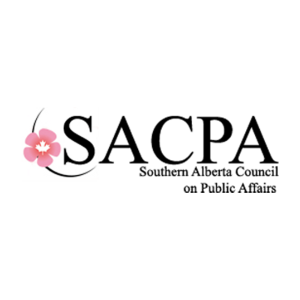
Wednesday Sep 25, 2019
The ARCHES Indigenous Recovery Coach Program: A Path For Recovery (Part 2 Q&A)
Wednesday Sep 25, 2019
Wednesday Sep 25, 2019
The ARCHES Indigenous Recovery Coach Program is a recovery-oriented, community-based and culturally informed recovery coach program, supporting adults undergoing opioid agonist therapy (OAT), also known as medically assisted therapy (MAT), for opioid addiction in Lethbridge. The program is intended to combine one-on-one community-based transition / navigator services with peer support services and culturally-focused healing. From a strength-based and person-centered approach, the Indigenous Recovery Coaches focus on working with participants to apply their newly acquired recovery skills in their living environment and help them resolve any issues or problems that can impact their recovery. Recovery Coaches will also try to support participants to stay engaged throughout their continuum of recovery, using techniques such as Motivational Interviewing and behavioural intervention practices. An Indigenous Recovery Coach functions similar to any other Recovery Coach, however, they approach this process from an Indigenous cultural lens. The speakers will talk about the muriad of scanarios that are at play and their learing from the first year of the program. Speakers: Joey Blood (Aakainiskimm) and Jerry Firth (Piitaana) Joey Blood grew up on the Blood Reserve, and his Blackfoot name is Aakainiskimm, meaning Many Buffalo Stones. Joey was raised in the Blackfoot culture by his parents, who are elders for some of the Blackfoot sacred societies. Joey is also a member of one of the Blackfoot sacred societies. he attended school on the reserve, as well as the Lethbridge College and Red Crow College. Joey has been involved with numerus agencies, both on and off the reserve, with much of his being with youth and families. He is now an Indigenous Recovery Coach with the Indigenous Recovery Coach Program through ARCHES. Jerry Firth’s Blackfoot name is Piitaana, meaning Eagle Man. Jerry is the Program Manager with the Indigenous Recovery Coach Program through ARCHES. Jerry is a Registered Social Work, with both his Bachelors and Masters in Social Work. His areas of interest are in community development, social planning, reconciliation, human rights and equity, inclusion and diversity, and addictions and recovery. Jerry values the power of relationship with family, friends and community. He is active in many community groups, committees and initiatives, including Reconciliation Lethbridge, Lethbridge Diversity & Inclusion Alliance, the Rotary Club of Lethbridge Mosaic and the Lethbridge Uplands Neighbourhood Association. Moderator: Amanda Scout Date: Thursday, September 26, 2019 Time: Doors open 11:30 am, Presentation 12 noon, buffet lunch 12:30 pm, Q&A 1 – 1:30 pm Location: Royal Canadian Legion (north door) 324 Mayor Magrath Dr. S. Lethbridge Cost: $14 buffet lunch with dessert/coffee/tea/juice or $2 coffee/tea/juice. RSVP not required Visit the SACPA website: http://www.sacpa.ca
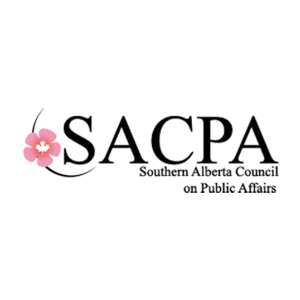
Wednesday Sep 25, 2019
The ARCHES Indigenous Recovery Coach Program: A Path For Recovery (Part 1)
Wednesday Sep 25, 2019
Wednesday Sep 25, 2019
The ARCHES Indigenous Recovery Coach Program is a recovery-oriented, community-based and culturally informed recovery coach program, supporting adults undergoing opioid agonist therapy (OAT), also known as medically assisted therapy (MAT), for opioid addiction in Lethbridge. The program is intended to combine one-on-one community-based transition / navigator services with peer support services and culturally-focused healing. From a strength-based and person-centered approach, the Indigenous Recovery Coaches focus on working with participants to apply their newly acquired recovery skills in their living environment and help them resolve any issues or problems that can impact their recovery. Recovery Coaches will also try to support participants to stay engaged throughout their continuum of recovery, using techniques such as Motivational Interviewing and behavioural intervention practices. An Indigenous Recovery Coach functions similar to any other Recovery Coach, however, they approach this process from an Indigenous cultural lens. The speakers will talk about the muriad of scanarios that are at play and their learing from the first year of the program. Speakers: Joey Blood (Aakainiskimm) and Jerry Firth (Piitaana) Joey Blood grew up on the Blood Reserve, and his Blackfoot name is Aakainiskimm, meaning Many Buffalo Stones. Joey was raised in the Blackfoot culture by his parents, who are elders for some of the Blackfoot sacred societies. Joey is also a member of one of the Blackfoot sacred societies. he attended school on the reserve, as well as the Lethbridge College and Red Crow College. Joey has been involved with numerus agencies, both on and off the reserve, with much of his being with youth and families. He is now an Indigenous Recovery Coach with the Indigenous Recovery Coach Program through ARCHES. Jerry Firth’s Blackfoot name is Piitaana, meaning Eagle Man. Jerry is the Program Manager with the Indigenous Recovery Coach Program through ARCHES. Jerry is a Registered Social Work, with both his Bachelors and Masters in Social Work. His areas of interest are in community development, social planning, reconciliation, human rights and equity, inclusion and diversity, and addictions and recovery. Jerry values the power of relationship with family, friends and community. He is active in many community groups, committees and initiatives, including Reconciliation Lethbridge, Lethbridge Diversity & Inclusion Alliance, the Rotary Club of Lethbridge Mosaic and the Lethbridge Uplands Neighbourhood Association. Moderator: Amanda Scout Date: Thursday, September 26, 2019 Time: Doors open 11:30 am, Presentation 12 noon, buffet lunch 12:30 pm, Q&A 1 – 1:30 pm Location: Royal Canadian Legion (north door) 324 Mayor Magrath Dr. S. Lethbridge Cost: $14 buffet lunch with dessert/coffee/tea/juice or $2 coffee/tea/juice. RSVP not required Visit the SACPA website: http://www.sacpa.ca
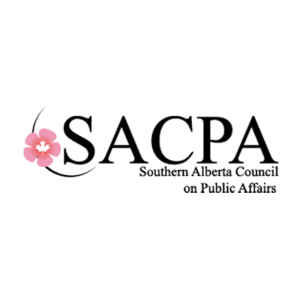
Wednesday Sep 18, 2019
How much does Lethbridge Recycle and where does it all end up? (Part 1)
Wednesday Sep 18, 2019
Wednesday Sep 18, 2019
The majority of residents in Lethbridge believe in the importance of recycling and keeping waste out of the landfill. The City's Waste Diversion Policy has led to specific targets for reducing waste in both households and businesses with the goal of cutting the overall community waste in half by 2030. The Residential Waste Diversion Strategy is targeted to reduce the amount of waste residents send to the landfill with a 50% waste diversion rate by 2021 and a 65% waste diversion rate by 2030. These goals can be reached by implementing effective and proven programs that increase waste diversion such as Introduction of a Curbside Recycling Collection Program and a Curbside Organics Collection Program. The business sector also has a large part to play when it comes to reducing waste. Targets for waste diversion in the Industrial, Commercial and Institutional (ICI) sector include a 25% waste diversion by 2021 and a 45% waste diversion by 2030. The City of Lethbridge is committed to market recycled materials and to keep it out of the landfill, include quarterly reports from the broker, including end market performance, assessment of market continuity, percentage of materials not suitable or that were disposed of, utilization of environmentally responsible end markets etc. As these programs gets underway, the City aim to have a transparent process to demonstrate where materials are being recycled and share that information. The speaker will elaborate on the details of waste diversion and describe issues that are likely to affect future policies. Speaker: Joel Sanchez Joel Sanchez was born and raised in Maracay, Venezuela, Joel relocated to Canada in 2006 with his family. He received his undergraduate degree in Mechanical Engineering in 1999 at the University of Carabobo in Venezuela and completed his Project Management Certification in 2009 at the University of Calgary. Joel has been employed with the City of Lethbridge since 2011. In 2017, Joel accepted the position of Waste & Recycling Services General Manager and is currently leading the Curbside Recycling Program with the City of Lethbridge. As a member of the Board of Directors for the Recycling Council of Alberta (RCA) as a City Liaison, Joel advocates for waste reduction, recycling, and resource conservation in the Province of Alberta. Prior to starting his career with the City of Lethbridge, Joel amassed more than 10 years of experience in the Food Industry in the areas of asset management and continuous improvement projects. Joel’s passion for the community of Lethbridge extends into his volunteer work as a baseball coach for more than 8 years with Little League and Board Member for Lethbridge American Legion Baseball. Moderator: Mark Goettel Date: Thursday, September 19, 2019 Time: Doors open 11:30 am, Presentation 12 noon, buffet lunch 12:30 pm, Q&A 1 – 1:30 pm Location: Royal Canadian Legion (north door) 324 Mayor Magrath Dr. S. Lethbridge Cost: $14 buffet lunch with dessert/coffee/tea/juice or $2 coffee/tea/juice. RSVP not required
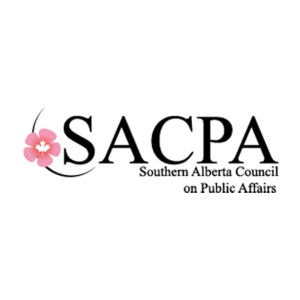
Wednesday Sep 18, 2019
How much does Lethbridge Recycle and where does it all end up? (Part 2 Q&A)
Wednesday Sep 18, 2019
Wednesday Sep 18, 2019
The majority of residents in Lethbridge believe in the importance of recycling and keeping waste out of the landfill. The City's Waste Diversion Policy has led to specific targets for reducing waste in both households and businesses with the goal of cutting the overall community waste in half by 2030. The Residential Waste Diversion Strategy is targeted to reduce the amount of waste residents send to the landfill with a 50% waste diversion rate by 2021 and a 65% waste diversion rate by 2030. These goals can be reached by implementing effective and proven programs that increase waste diversion such as Introduction of a Curbside Recycling Collection Program and a Curbside Organics Collection Program. The business sector also has a large part to play when it comes to reducing waste. Targets for waste diversion in the Industrial, Commercial and Institutional (ICI) sector include a 25% waste diversion by 2021 and a 45% waste diversion by 2030. The City of Lethbridge is committed to market recycled materials and to keep it out of the landfill, include quarterly reports from the broker, including end market performance, assessment of market continuity, percentage of materials not suitable or that were disposed of, utilization of environmentally responsible end markets etc. As these programs gets underway, the City aim to have a transparent process to demonstrate where materials are being recycled and share that information. The speaker will elaborate on the details of waste diversion and describe issues that are likely to affect future policies. Speaker: Joel Sanchez Joel Sanchez was born and raised in Maracay, Venezuela, Joel relocated to Canada in 2006 with his family. He received his undergraduate degree in Mechanical Engineering in 1999 at the University of Carabobo in Venezuela and completed his Project Management Certification in 2009 at the University of Calgary. Joel has been employed with the City of Lethbridge since 2011. In 2017, Joel accepted the position of Waste & Recycling Services General Manager and is currently leading the Curbside Recycling Program with the City of Lethbridge. As a member of the Board of Directors for the Recycling Council of Alberta (RCA) as a City Liaison, Joel advocates for waste reduction, recycling, and resource conservation in the Province of Alberta. Prior to starting his career with the City of Lethbridge, Joel amassed more than 10 years of experience in the Food Industry in the areas of asset management and continuous improvement projects. Joel’s passion for the community of Lethbridge extends into his volunteer work as a baseball coach for more than 8 years with Little League and Board Member for Lethbridge American Legion Baseball. Moderator: Mark Goettel Date: Thursday, September 19, 2019 Time: Doors open 11:30 am, Presentation 12 noon, buffet lunch 12:30 pm, Q&A 1 – 1:30 pm Location: Royal Canadian Legion (north door) 324 Mayor Magrath Dr. S. Lethbridge Cost: $14 buffet lunch with dessert/coffee/tea/juice or $2 coffee/tea/juice. RSVP not required
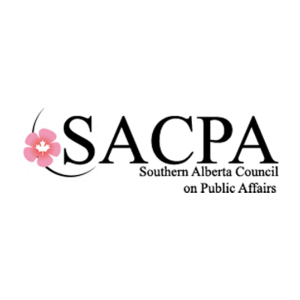
Wednesday Sep 11, 2019
The Economic Impact of Area Agriculture on Lethbridge – Is it Essential? (Part 1)
Wednesday Sep 11, 2019
Wednesday Sep 11, 2019
The agriculture sector in Lethbridge is supported by the surrounding region, which includes more than 900 farms generating farm receipts of $1.1 Billion per year, building on assets of $3.2 Billion. Primary crops in this region include canola, corn, potatoes, sugar beets and pulses in addition to significant livestock and dairy production. There are more than 120 established agri-food processing businesses in the Lethbridge region producing food and/or feed for local consumption and export. In the past 10 years this sector has seen significant investment and plans for future investment. In fact, the agriculture sector is the largest single sector of the Lethbrige economy representing 20% of total gross domestic product or GDP. Lethbridge has a long history of being an agricultural production, distribution and service centre. Lethbridge Research Centre (established in 1906) is the largest within Agriculture and Agri-Food Canada's national network of 19 centres and leads Canada's research in the development of bio industrial platforms. Fast facts are: The southern Alberta agricultural region has an annual production capacity of 860,000+ acres in canola crops. 21% of the Alberta total Canola crops are grown here. Lethbridge based Richardson Oilseed Ltd. was the first company in the world to market canola oil. Beef producers in the Lethbridge region have the capacity to produce more than half a million head of cattle per year valued at approx. $700 million. Sunrise Poultry Processors Ltd processes approx. 14.5 million broilers per year, that’s 275,000 to 290,000 per week. Speaker: Trevor Lewington Trevor Lewington is the Chief Executive Officer for Economic Development Lethbridge. Together with a 25-member volunteer Board of Directors, Trevor is proud to work with a talented team that develops and delivers on initiatives to promote the Lethbridge region as an excellent place to live, work, visit, invest and do business. Trevor holds a Bachelor of Commerce with a major in Human Resource Management, completed a Change Leadership Certificate with Cornell University and is a Chartered Professional in Human Resources (CPHR) through CPHR Alberta. He also holds a Certified Logistics Professional (CCLP) designation from the Canadian Institute of Traffic and Transportation. With over 15 years of executive management experience in the food processing industry, in addition to many years living the trials and tribulations of a small business owner combined with additional roles in the public sector, Trevor strives to provide a broad-based perspective and collaborative approach which will enhance initiatives that drive continued economic growth in southern Alberta. Trevor was recognized by Economic Developers Alberta for “outstanding dedication and service” to the profession as “2019 Economic Developer of the Year.” Trevor is very engaged in his community and currently serves in the role of Mayor in the Village of Stirling. Moderator: Knud Petersen Date: Thursday, Sep 12, 2019 Time: Doors open 11:30 am, Presentation 12 noon, buffet lunch 12:30 pm, Q&A 1 – 1:30 pm Location:Royal Canadian Legion (north door) 324 Mayor Magrath Dr. S. Lethbridge Cost: $14 buffet lunch with dessert/coffee/tea/juice or $2 coffee/tea/juice. RSVP not required
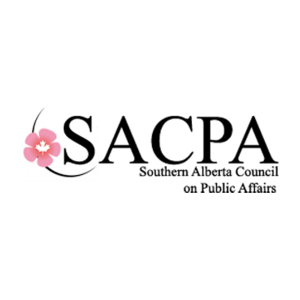
Wednesday Sep 11, 2019
The Economic Impact of Area Agriculture on Lethbridge – Is it Essential? (Part 2 Q&A)
Wednesday Sep 11, 2019
Wednesday Sep 11, 2019
The agriculture sector in Lethbridge is supported by the surrounding region, which includes more than 900 farms generating farm receipts of $1.1 Billion per year, building on assets of $3.2 Billion. Primary crops in this region include canola, corn, potatoes, sugar beets and pulses in addition to significant livestock and dairy production. There are more than 120 established agri-food processing businesses in the Lethbridge region producing food and/or feed for local consumption and export. In the past 10 years this sector has seen significant investment and plans for future investment. In fact, the agriculture sector is the largest single sector of the Lethbrige economy representing 20% of total gross domestic product or GDP. Lethbridge has a long history of being an agricultural production, distribution and service centre. Lethbridge Research Centre (established in 1906) is the largest within Agriculture and Agri-Food Canada's national network of 19 centres and leads Canada's research in the development of bio industrial platforms. Fast facts are: The southern Alberta agricultural region has an annual production capacity of 860,000+ acres in canola crops. 21% of the Alberta total Canola crops are grown here. Lethbridge based Richardson Oilseed Ltd. was the first company in the world to market canola oil. Beef producers in the Lethbridge region have the capacity to produce more than half a million head of cattle per year valued at approx. $700 million. Sunrise Poultry Processors Ltd processes approx. 14.5 million broilers per year, that’s 275,000 to 290,000 per week. Speaker: Trevor Lewington Trevor Lewington is the Chief Executive Officer for Economic Development Lethbridge. Together with a 25-member volunteer Board of Directors, Trevor is proud to work with a talented team that develops and delivers on initiatives to promote the Lethbridge region as an excellent place to live, work, visit, invest and do business. Trevor holds a Bachelor of Commerce with a major in Human Resource Management, completed a Change Leadership Certificate with Cornell University and is a Chartered Professional in Human Resources (CPHR) through CPHR Alberta. He also holds a Certified Logistics Professional (CCLP) designation from the Canadian Institute of Traffic and Transportation. With over 15 years of executive management experience in the food processing industry, in addition to many years living the trials and tribulations of a small business owner combined with additional roles in the public sector, Trevor strives to provide a broad-based perspective and collaborative approach which will enhance initiatives that drive continued economic growth in southern Alberta. Trevor was recognized by Economic Developers Alberta for “outstanding dedication and service” to the profession as “2019 Economic Developer of the Year.” Trevor is very engaged in his community and currently serves in the role of Mayor in the Village of Stirling. Moderator: Knud Petersen Date: Thursday, Sep 12, 2019 Time: Doors open 11:30 am, Presentation 12 noon, buffet lunch 12:30 pm, Q&A 1 – 1:30 pm Location:Royal Canadian Legion (north door) 324 Mayor Magrath Dr. S. Lethbridge Cost: $14 buffet lunch with dessert/coffee/tea/juice or $2 coffee/tea/juice. RSVP not required
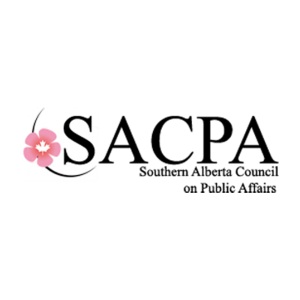
Wednesday Sep 04, 2019
The Blackfoot Confederacy and its Culture – what may their Future Hold? (Part 1)
Wednesday Sep 04, 2019
Wednesday Sep 04, 2019
The Blackfoot people is made up of four nations. These nations include the Piegan Blackfeet, Siksika, Piikani Nation, and Kainai. The four nations come together to make up what is known as the Blackfoot Confederacy, meaning that they have banded together to help one another. The nations have their own separate governments ruled by a head chief, but regularly come together for religious and social celebrations. Historically, the member peoples of the Confederacy were nomadic bison hunters and trout fishermen, who ranged across large areas of the northern Great Plains of western North America. They followed the bison herds as they migrated between what are now the United States and Canada, as far north as the Bow River. In the early 18th century, they acquired horses and firearms from white traders enabling them to expand their territory at the expense of neighboring tribes. In the mid 19th century, the systematic commercial bison hunting by white hunters nearly ended the bison herds and permanently changed life on the Plains Periods of starvation and deprivation followed. The Blackfoot tribe, like other Plains Indians, was forced to adopt ranching and farming, settling on permanent reservations. In the 1870s, their band signed treaties with both the United States and Canada, ceding most of their lands in exchange for annuities of food and medical aid, as well as help in learning to farm. But the Blackfoot have worked to maintain their traditional language and culture in the face of assimilationist policies of both the U.S. and Canada. The speaker will elaborate on how Blackfoot culture is unique and speculate on what issues the future may bring. Speaker: Travis Plaited Hair Travis Plaited Hair is currently the Executive Director of Sik-Ooh-Kotoki Friendship Society and Leader of the centuries-old Sacred Horns Society of the Blood Reserve. This society is an informal governance system that carries traditional authorities for various societies and their practices within the Blackfoot culture such as the Sun Dance. Travis’ career has involved working closely with many groups on issues that directly affect southern Alberta’s Indigenous population. Travis previously served as Liaison Officer for Blood Tribe Chief and Council from 2013-2017. He worked at Lethbridge College as an FNMI Student Advisor from 2011 to 2013 and is presently a member of the Lethbridge College Board of Governors. Travis is an educator in cultural awareness, a role model and mentor to Indigenous youth. He is passionate about helping young adults preserve their cultural beliefs and traditions while learning how to live healthy productive lives both on and off the reserve. Moderator: Terry Shillington Date: Thursday, September 5, 2019 Time: Doors open 11:30 am, Presentation 12 noon, buffet lunch 12:30 pm, Q&A 1 – 1:30 pm Location: Royal Canadian Legion (north door) 324 Mayor Magrath Dr. S. Lethbridge Cost: $14 buffet lunch with dessert/coffee/tea/juice or $2 coffee/tea/juice. RSVP not required
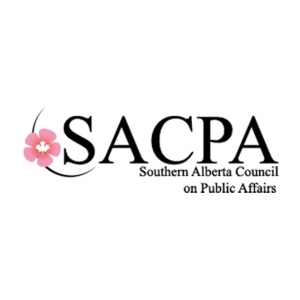
Wednesday Sep 04, 2019
The Blackfoot Confederacy and its Culture – what may their Future Hold? (Part 2 Q&A)
Wednesday Sep 04, 2019
Wednesday Sep 04, 2019
The Blackfoot people is made up of four nations. These nations include the Piegan Blackfeet, Siksika, Piikani Nation, and Kainai. The four nations come together to make up what is known as the Blackfoot Confederacy, meaning that they have banded together to help one another. The nations have their own separate governments ruled by a head chief, but regularly come together for religious and social celebrations. Historically, the member peoples of the Confederacy were nomadic bison hunters and trout fishermen, who ranged across large areas of the northern Great Plains of western North America. They followed the bison herds as they migrated between what are now the United States and Canada, as far north as the Bow River. In the early 18th century, they acquired horses and firearms from white traders enabling them to expand their territory at the expense of neighboring tribes. In the mid 19th century, the systematic commercial bison hunting by white hunters nearly ended the bison herds and permanently changed life on the Plains Periods of starvation and deprivation followed. The Blackfoot tribe, like other Plains Indians, was forced to adopt ranching and farming, settling on permanent reservations. In the 1870s, their band signed treaties with both the United States and Canada, ceding most of their lands in exchange for annuities of food and medical aid, as well as help in learning to farm. But the Blackfoot have worked to maintain their traditional language and culture in the face of assimilationist policies of both the U.S. and Canada. The speaker will elaborate on how Blackfoot culture is unique and speculate on what issues the future may bring. Speaker: Travis Plaited Hair Travis Plaited Hair is currently the Executive Director of Sik-Ooh-Kotoki Friendship Society and Leader of the centuries-old Sacred Horns Society of the Blood Reserve. This society is an informal governance system that carries traditional authorities for various societies and their practices within the Blackfoot culture such as the Sun Dance. Travis’ career has involved working closely with many groups on issues that directly affect southern Alberta’s Indigenous population. Travis previously served as Liaison Officer for Blood Tribe Chief and Council from 2013-2017. He worked at Lethbridge College as an FNMI Student Advisor from 2011 to 2013 and is presently a member of the Lethbridge College Board of Governors. Travis is an educator in cultural awareness, a role model and mentor to Indigenous youth. He is passionate about helping young adults preserve their cultural beliefs and traditions while learning how to live healthy productive lives both on and off the reserve. Moderator: Terry Shillington Date: Thursday, September 5, 2019 Time: Doors open 11:30 am, Presentation 12 noon, buffet lunch 12:30 pm, Q&A 1 – 1:30 pm Location: Royal Canadian Legion (north door) 324 Mayor Magrath Dr. S. Lethbridge Cost: $14 buffet lunch with dessert/coffee/tea/juice or $2 coffee/tea/juice. RSVP not required
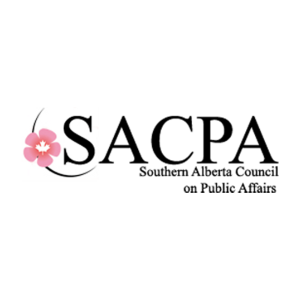
Wednesday Jun 12, 2019
Wednesday Jun 12, 2019
In response to calls for action from Indigenous families, communities and organizations, as well as non-governmental and international organizations, the Government of Canada launched an entirely independent National Inquiry into Missing and Murdered Indigenous Women and Girls (MMIWG) in September 2016. The National Inquiry’s Final MMIWG Report released June 3, reveals that persistent and deliberate human and Indigenous rights violations and abuses are the root cause behind Canada’s staggering rates of violence against Indigenous women, girls and 2SLGBTQQIA people. The two volume report calls for transformative legal and social changes to resolve the crisis that has devastated Indigenous communities across Canada. The Final Report is comprised of the truths of more than 2,380 family members, survivors of violence, experts and Knowledge Keepers shared over two years of cross-country public hearings and evidence gathering. It delivers 231 individual Calls for Justice directed at governments, institutions, social service providers, industries and all Canadians. As documented in the Final Report, testimony from family members and survivors of violence spoke about a surrounding context marked by multigenerational and intergenerational trauma and marginalization in the form of poverty, insecure housing or homelessness and barriers to education, employment, health care and cultural support. Experts and Knowledge Keepers spoke to specific colonial and patriarchal policies that displaced women from their traditional roles in communities and governance and diminished their status in society, leaving them vulnerable to violence. The speaker will elaborate and offer thoughts on future actions Speaker: Terri-Lynn Fox Oki, Niistoo’akoka Aapiihkwi’komotakii, my English name is Terri-Lynn Fox. I am a member of the Kainai Nation, which is part of the Blackfoot Confederacy. My academic credentials include a B.A. in Psychology, an M.A. in Sociology, and I am currently completing a Ph.D. in Education. I am Director of the Kainai Wellness Centre, which is one branch of the Blood Tribe Department of Health, located on the Kainai Nation. I practice our Siksikaitsitapi ways and envision this to be at the forefront of our healing methods, in addition to an avenue for our way forward, as we think about, participate in, and actively change the Canadian landscape for the betterment of all – to justly reach reconciliation. Moderator: Knud Petersen Date: Thursday, June 13, 2019 Time: Doors open 11:30 am, Presentation 12 noon, buffet lunch 12:30 pm, Q&A 1 – 1:30 pm Location: Royal Canadian Legion (north door) 324 Mayor Magrath Dr. S. Lethbridge Cost: $14 buffet lunch with dessert/coffee/tea/juice or $2 coffee/tea/juice. RSVP not required
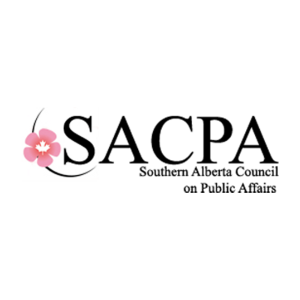
Wednesday Jun 12, 2019
Wednesday Jun 12, 2019
In response to calls for action from Indigenous families, communities and organizations, as well as non-governmental and international organizations, the Government of Canada launched an entirely independent National Inquiry into Missing and Murdered Indigenous Women and Girls (MMIWG) in September 2016. The National Inquiry’s Final MMIWG Report released June 3, reveals that persistent and deliberate human and Indigenous rights violations and abuses are the root cause behind Canada’s staggering rates of violence against Indigenous women, girls and 2SLGBTQQIA people. The two volume report calls for transformative legal and social changes to resolve the crisis that has devastated Indigenous communities across Canada. The Final Report is comprised of the truths of more than 2,380 family members, survivors of violence, experts and Knowledge Keepers shared over two years of cross-country public hearings and evidence gathering. It delivers 231 individual Calls for Justice directed at governments, institutions, social service providers, industries and all Canadians. As documented in the Final Report, testimony from family members and survivors of violence spoke about a surrounding context marked by multigenerational and intergenerational trauma and marginalization in the form of poverty, insecure housing or homelessness and barriers to education, employment, health care and cultural support. Experts and Knowledge Keepers spoke to specific colonial and patriarchal policies that displaced women from their traditional roles in communities and governance and diminished their status in society, leaving them vulnerable to violence. The speaker will elaborate and offer thoughts on future actions Speaker: Terri-Lynn Fox Oki, Niistoo’akoka Aapiihkwi’komotakii, my English name is Terri-Lynn Fox. I am a member of the Kainai Nation, which is part of the Blackfoot Confederacy. My academic credentials include a B.A. in Psychology, an M.A. in Sociology, and I am currently completing a Ph.D. in Education. I am Director of the Kainai Wellness Centre, which is one branch of the Blood Tribe Department of Health, located on the Kainai Nation. I practice our Siksikaitsitapi ways and envision this to be at the forefront of our healing methods, in addition to an avenue for our way forward, as we think about, participate in, and actively change the Canadian landscape for the betterment of all – to justly reach reconciliation. Moderator: Knud Petersen Date: Thursday, June 13, 2019 Time: Doors open 11:30 am, Presentation 12 noon, buffet lunch 12:30 pm, Q&A 1 – 1:30 pm Location: Royal Canadian Legion (north door) 324 Mayor Magrath Dr. S. Lethbridge Cost: $14 buffet lunch with dessert/coffee/tea/juice or $2 coffee/tea/juice. RSVP not required
